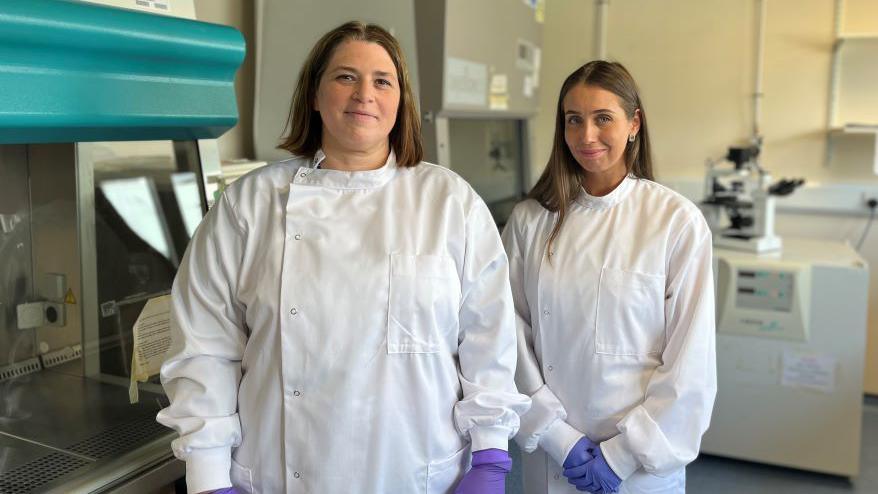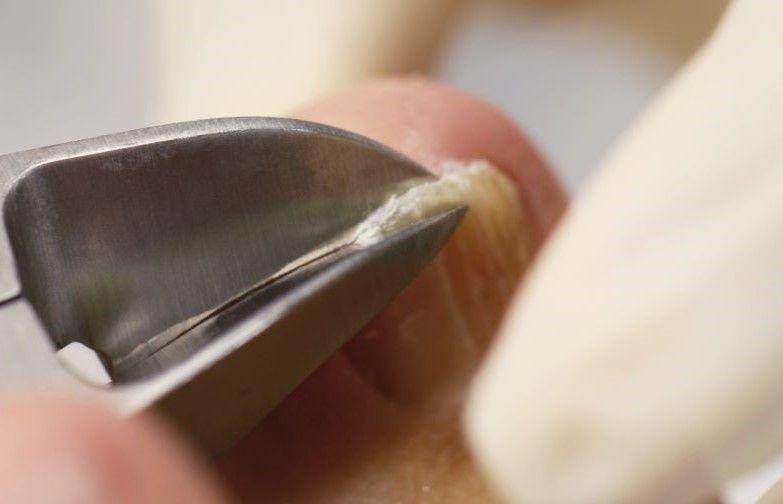Could toenails help identify blood cancer causes?

Lesley Anderson and Emma-Louise Tarburn are working on the project
- Published
Researchers in Aberdeen are investigating if toenails could help identify causes of blood cancer.
Participants in the study are being asked to send in their cuttings, along with a saliva sample.
The clippings will be cleaned, ground down, and placed in a mass spectrometry machine for analysis.
Those taking part will also be asked to provide a blood sample in hospital.
Lesley Anderson was tasked with collecting toenail clippings during her PhD, and will now be stockpiling them again 20 years later.
Back then, she was researching causes of oesophageal cancer.
This time the study is into the causes of a group of blood cancers, known as myeloproliferative neoplasms (MPNs).
Patients from around the country are taking part in the MOSAICC (MyelOproliferative neoplasmS: An In-depth Case-Control) study, which has been supported by Aberdeen-based charity Friends of ANCHOR.

Although the causes of most MPNs are unknown, researchers believe genetic traits or things people have been exposed to during their lifetime – such as where they live or work – may play a part.
Now Prof Anderson and the team are looking for more definitive causes and believe toenails could be key.
“Toenails can deliver an understanding of exposure in a measured way,” she said.
“I can ask patients questions but often it’s very difficult to remember some of the historic detail. The fact we can measure something in a biological sample that your body is getting rid of anyway is really helpful.”
'Whole realm of life'
Prof Anderson, chair of health data science at the University of Aberdeen, said they were comparing people with and without MPNs to identify what the causes might be.
“They might be genetic, or lifestyle factors such as weight or smoking, or occupational or chemical exposures. The MOSAICC study looks across the whole realm of a patient's life.”
Aberdeen and Inverness are the only two sites in Scotland currently recruiting for MOSAICC, with a further 19 sites open around the rest of the UK and Ireland. More sites are to open in 2024.
In total, the research team needs to recruit 650 people for a broad representation of the country.
For more information on the study, email mosaicc@abdn.ac.uk
Related topics
- Published8 March 2011